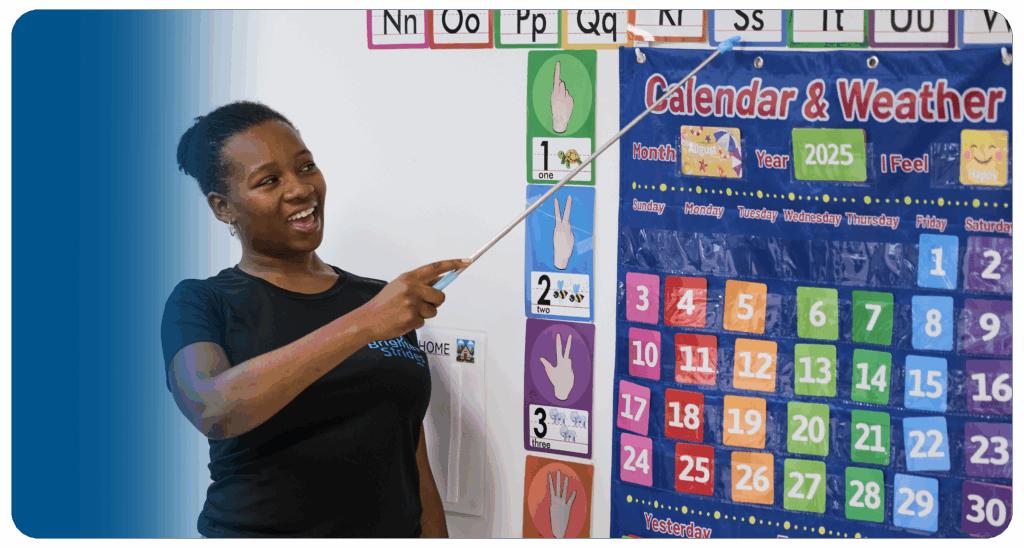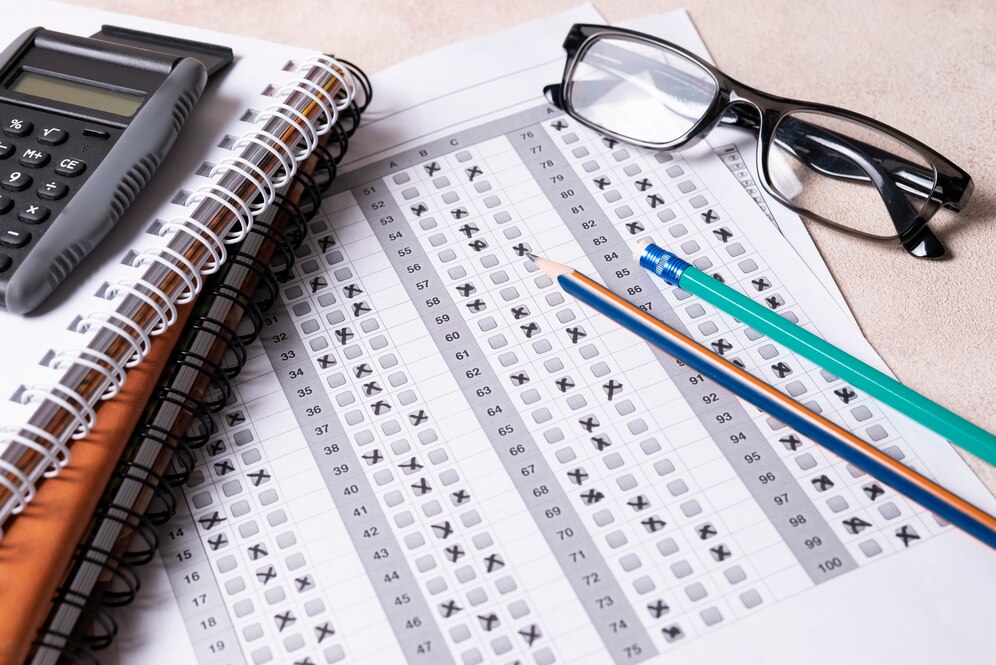Understanding the BCBA Exam
The BCBA (Board Certified Behavior Analyst) exam is a comprehensive assessment designed to evaluate an individual’s knowledge and skills in the field of applied behavior analysis. This exam plays a crucial role in obtaining BCBA certification, which is required to practice as a certified behavior analyst. Understanding the BCBA exam and its format is essential for effective exam preparation.
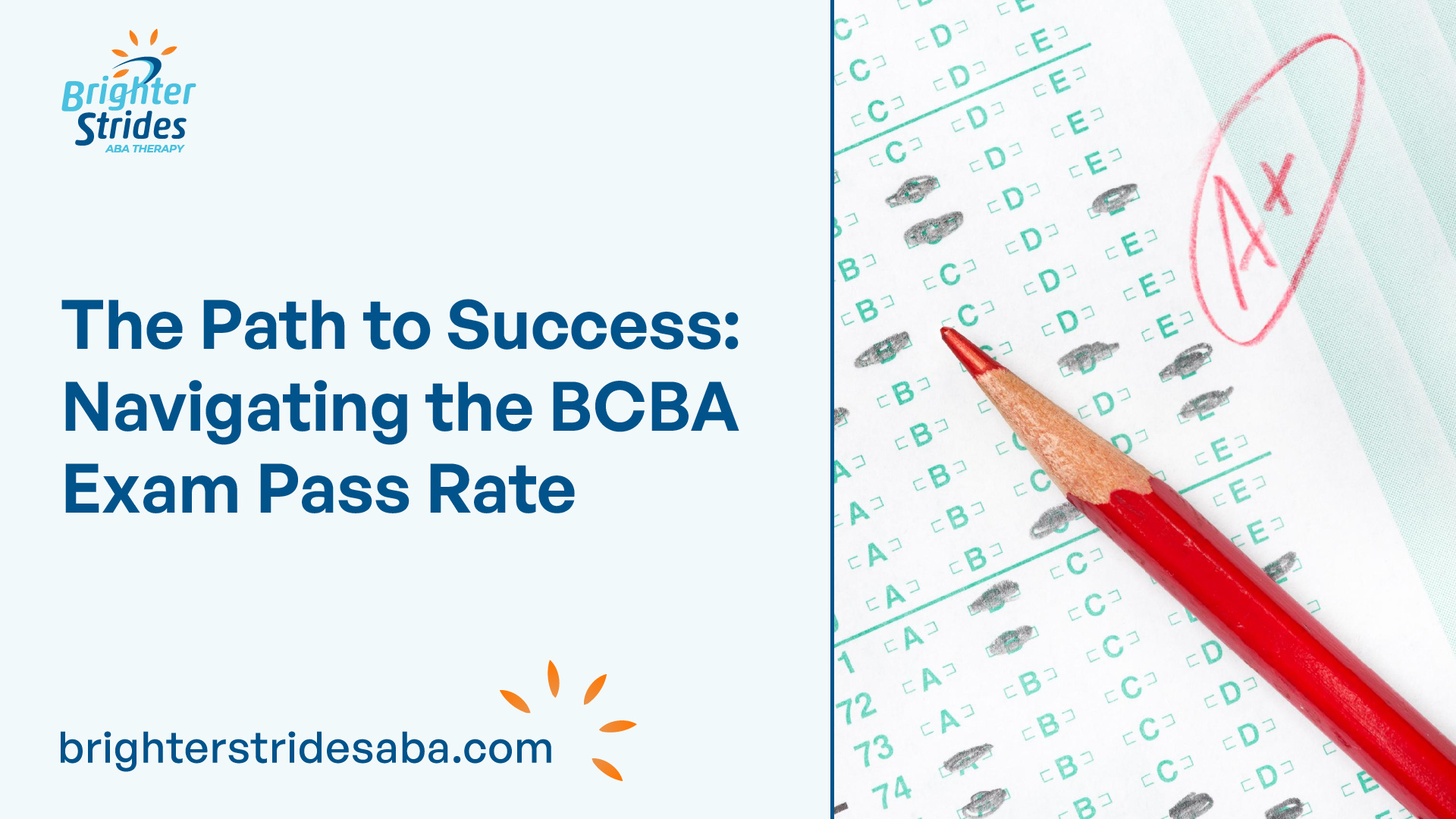
An Overview of the BCBA Exam
The BCBA exam consists of 150 multiple-choice questions that cover a wide range of topics relating to behavior analysis principles and concepts. It is a challenging and comprehensive exam that requires thorough preparation. The Behavior Analyst Certification Board (BACB) administers the BCBA exam in a computer-based format, allowing candidates to schedule their exam at a convenient time and location.
To pass the BCBA exam, candidates must achieve a minimum score of 400 out of 500. The exam is designed to assess a candidate’s understanding of behavior analysis principles, ethical considerations, measurement and data analysis, experimental design, and behavioral interventions.
Exam Format and Requirements
The BCBA exam consists of 150 multiple-choice questions that examinees must complete within a 4-hour time frame. The questions are designed to assess the candidate’s knowledge, understanding, and application of behavior analysis principles in real-world scenarios.
Proper exam preparation is crucial for success on the BCBA exam, as it covers a wide range of topics and requires a deep understanding of behavior analysis principles and concepts. By implementing effective study strategies and managing exam anxiety, candidates can approach the BCBA exam with confidence and increase their likelihood of achieving a passing score.
In summary, the BCBA exam is a comprehensive assessment that evaluates a candidate’s knowledge and skills in the field of applied behavior analysis. With thorough preparation and a solid understanding of the exam format and requirements, individuals can increase their chances of success on this important step towards BCBA certification.
BCBA Exam Pass Rates
To understand the level of success in the BCBA (Board Certified Behavior Analyst) exam, it is essential to examine the pass rates. These rates provide insight into the overall performance of candidates, including first-time takers, as well as variations based on degree and program type.
Overall Pass Rates
The overall pass rates for the BCBA exam provide an overview of the success rate across all candidates. In 2019, the worldwide pass rate was 63%, while in 2018, it was slightly higher at 65% . These numbers indicate that a majority of candidates were able to meet the requirements and pass the exam.
First-Time Taker Pass Rates
The pass rates for first-time takers of the BCBA exam offer insights into the performance of individuals taking the exam for the first time. In 2019, the pass rate for first-time takers was 70%, and in 2018, it was 67% . These rates suggest that a significant proportion of first-time candidates successfully passed the exam on their initial attempt.
Pass Rates by Degree and Program Type
Pass rates can also vary based on the degree and program type of candidates. In 2020, the pass rate for first-time candidates from accredited university programs was 62%. Comparatively, the pass rate for first-time candidates from non-accredited programs was lower at 25%. Additionally, the pass rate for first-time candidates from international programs was 56%. Overall, the pass rate for first-time candidates across all program types was 59% in 2020.
It is worth noting that repeat candidates had a significantly lower pass rate of 15% in 2020 . This highlights the importance of thorough preparation and learning from past experiences to increase the chances of success.
Exam candidates should keep in mind that these pass rates can fluctuate from year to year. It is crucial to stay updated with the latest information and trends related to the BCBA exam to make informed decisions and tailor study strategies accordingly.
Factors Affecting BCBA Exam Performance
Several factors can influence an individual’s performance on the BCBA exam. Understanding these factors can help candidates better prepare for the exam and increase their chances of success. The key factors that can impact BCBA exam performance include the importance of supervision hours, the level of preparation and study strategies, and the impact of practical experience.
Importance of Supervision Hours
The number and quality of supervision hours completed play a significant role in BCBA exam performance . The Behavior Analyst Certification Board (BACB) requires candidates to complete a specific number of supervision hours, which involve supervised practical experience in the field of applied behavior analysis (ABA). These hours are crucial for gaining hands-on experience and developing the necessary skills and competencies required for the BCBA exam.
Candidates who have completed a higher number of supervision hours tend to have a higher pass rate on the BCBA exam. These hours provide opportunities for direct observation, feedback, and guidance from experienced BCBAs, which can significantly enhance a candidate’s understanding of ABA principles and their ability to apply them effectively.
Level of Preparation and Study Strategies
The level of preparation and study strategies employed by candidates can significantly impact their performance on the BCBA exam. Developing a structured study plan that covers all the content areas outlined by the BACB is essential. This allows candidates to allocate sufficient time to review each topic and ensure a comprehensive understanding.
Utilizing a variety of study resources, such as textbooks, online courses, practice exams, and study groups, can also enhance exam preparation. Each resource offers different perspectives and approaches to the material, providing a well-rounded understanding of the concepts.
Effective study strategies, such as breaking down the content into manageable sections, utilizing mnemonic devices, and practicing with sample questions, can aid in retaining and applying the knowledge during the exam. It is crucial to tailor study strategies to individual learning styles and preferences to optimize the learning experience.
Impact of Practical Experience
Practical experience in the field of applied behavior analysis (ABA) plays a significant role in BCBA exam success. Candidates with more years of practical experience tend to have a higher pass rate on the exam. This experience allows individuals to apply theoretical knowledge in real-life situations, strengthening their understanding and problem-solving skills.
Practical experience provides candidates with exposure to diverse client populations, settings, and challenging situations. This exposure contributes to a broader perspective and a deeper understanding of the principles and applications of ABA, which can ultimately improve performance on the BCBA exam.
In conclusion, several factors can impact BCBA exam performance. The importance of supervision hours, the level of preparation and study strategies, and the impact of practical experience all play a significant role in determining success. By recognizing and addressing these factors, candidates can enhance their exam preparation and increase their chances of passing the BCBA exam.
Tips for Passing the BCBA Exam
Preparing for the BCBA exam requires dedication, effective study strategies, and the ability to manage test anxiety. By implementing these tips, candidates can increase their chances of passing the exam and achieving their goal of becoming a Board Certified Behavior Analyst (BCBA).
Creating a Study Plan
A well-structured study plan is essential for organizing your study time and ensuring comprehensive coverage of the exam content. Start by identifying the topics and concepts that will be covered on the BCBA exam. Break down these topics into manageable study sessions and allocate specific time slots for each session.
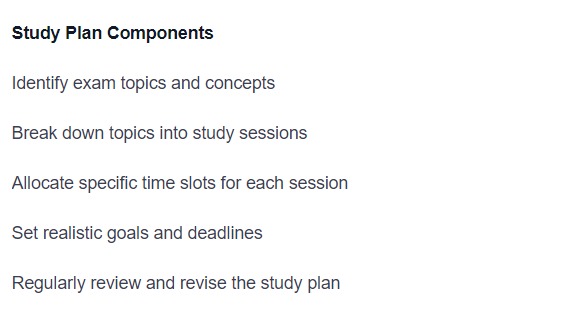
By setting realistic goals and deadlines, you can track your progress and ensure that you cover all the necessary material before the exam. Regularly review and revise your study plan to accommodate any changes or areas that require additional focus.
Utilizing Study Resources
Utilizing a variety of study resources can provide a comprehensive understanding of the exam material. Some recommended resources include textbooks, online courses, and practice exams. By using multiple resources, you can gain different perspectives and reinforce your knowledge.
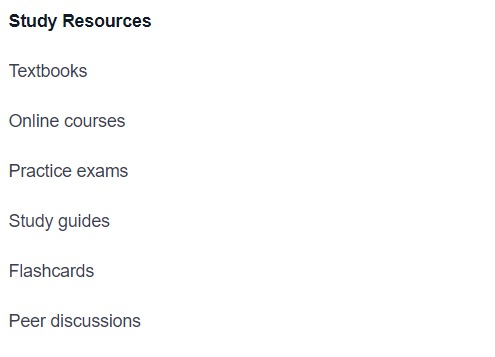
Textbooks provide in-depth coverage of the exam topics, while online courses offer interactive learning experiences. Practice exams help you become familiar with the exam format and identify areas of weakness that require additional attention. Study guides and flashcards can aid in memorizing key concepts and definitions. Additionally, engaging in peer discussions or study groups can enhance your understanding through collaborative learning.
Managing Test Anxiety
Test anxiety is common among BCBA exam takers, but managing it effectively is crucial for success. Here are some strategies to help you manage test anxiety:
- Practice relaxation techniques: Deep breathing exercises, meditation, or visualization can help calm your mind and reduce anxiety.
- Get sufficient rest: Prioritize sleep to ensure you are well-rested and mentally alert on exam day.
- Maintain a healthy lifestyle: Regular exercise and a balanced diet can contribute to overall well-being and reduce stress.
- Review and revise: Regularly review your study materials to build confidence in your knowledge.
- Positive self-talk: Replace negative thoughts with positive affirmations to boost your confidence and reduce anxiety.
Implementing these strategies can help you approach the BCBA exam with a clear mind and a calm demeanor, allowing you to showcase your knowledge and skills effectively.
By creating a study plan, utilizing various study resources, and managing test anxiety, candidates can enhance their preparation for the BCBA exam and increase their chances of success. Remember, thorough preparation, coupled with a confident mindset, is key to conquering the exam and embarking on a rewarding career as a BCBA.
Increasing Your Chances of Success
When it comes to passing the BCBA exam, dedication and effective strategies are key. Here are some tips to help you increase your chances of success:
Dedication to Studying
To succeed on the BCBA exam, a high level of dedication and commitment to studying is essential. The exam covers a wide range of topics, including principles of behavior analysis, assessment, intervention, and professional conduct. It is crucial to allocate sufficient time to study and create a structured study plan.
Develop a study schedule that works for you, giving yourself ample time to cover all the necessary material. Break down the topics into manageable sections and set realistic goals for each study session. Consistency is key, so strive to study regularly and avoid cramming at the last minute.
Test-Taking Strategies
In addition to thorough preparation, employing effective test-taking strategies can greatly enhance your performance on the BCBA exam. Here are some strategies to consider:
- Read Each Question Carefully: Take the time to fully understand each question before selecting your answer. Pay attention to keywords and phrases that may indicate the correct response.
- Manage your Time: The BCBA exam consists of 150 multiple-choice questions, and time management is crucial. Pace yourself throughout the exam to ensure you have sufficient time to answer all the questions. If you encounter a challenging question, consider flagging it and returning to it later.
- Eliminate Incorrect Options: If you are uncertain about the correct answer, try to eliminate any clearly incorrect options. This increases your chances of selecting the correct answer even if you are unsure.
- Use Process of Elimination: If you are unsure about a question, systematically eliminate the options that you know are incorrect. This narrows down the choices and improves your chances of selecting the correct response.
Learning from Past Experiences
Learning from past experiences, whether it be your own or those of others, can provide valuable insights and help you improve your performance on the BCBA exam. Connect with individuals who have successfully passed the exam or seek advice from professionals in the field. They can provide guidance on study resources, effective study techniques, and strategies for managing test anxiety.
Reflect on your own experiences during the preparation process. Identify areas where you may have struggled or encountered challenges, and develop strategies to overcome them. Learning from past mistakes and implementing improvements can significantly enhance your chances of success.
By dedicating ample time to studying, implementing effective test-taking strategies, and learning from past experiences, you can increase your chances of passing the BCBA exam. Remember to stay focused, manage your time effectively, and maintain a positive mindset throughout the preparation process. With the right approach and a determined mindset, you can navigate the path to success and achieve your goal of becoming a BCBA.
Conclusion
In conclusion, passing the BCBA exam requires a combination of factors such as practical experience, effective study strategies, and dedication.
Candidates who have completed a higher number of supervision hours, developed structured study plans, utilized multiple study resources, and managed test anxiety tend to perform better on the exam. By implementing these tips and strategies, candidates can increase their chances of success and embark on a fulfilling career as a Board Certified Behavior Analyst (BCBA).
Remember that passing the BCBA exam is not only about achieving certification but also about making a significant impact on individuals’ lives through the principles of Applied Behavior Analysis (ABA).
Sources
- https://passthebigabaexam.com/beat-the-odds-factors-that-impact-performance-on-the-bcba-exam/
- https://www.thetreetop.com/aba-therapy/what-percentage-of-people-pass-the-bcba-exam/
- https://www.studyaba.com/bcba-exam-advice-2/

